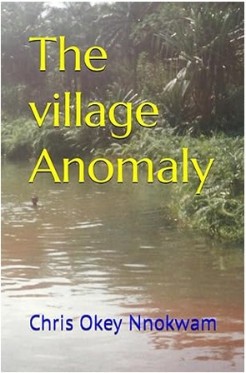Are they, he wondered, faulting him? “That isn’t right,” he yelled. He couldn’t believe it. A sinking feeling of grief overtook him. The elders always asked them to be vigilant, mindful of their environment, assuring them that a mouse never could steal from a man that was wide-awake. Yet, the council of elders said that he must show remorse for contending with the swindler before he could receive every councilman’s forgiveness. He sighed. The men’s lack of due concern confounding him, a sudden sense of despair came over him. Feeling sorry, presuming that whipping an elephant to death with a broom might be easier than getting one particular spiteful councilman to approve of him, he thought that getting all the councilmen to accept his apology might be a hard row to hoe. The feeling strengthening his willpower, toughening him, he asserted his status of being a full-fledged man. He remembered his father telling him that being a man was like sitting on the head of a standing giraffe; a boy transforming to a man would experience a vast range of believable and unbelievable matters that he must attend to with courage. He therefore believed the time had come for him to experience and deal with matters bravely.
The trouble came about when Okezie was abroad and intensified after his return to the village. He was a young man, 26 years old, 5ft 8inches tall, and dark-skinned with low-cut afro hair. He was hardworking, rather work harder than accept failure, often relying on his instinct. He was among few village youths that completed both primary and post primary education at the European Christian Mission’s schools in the 1930s when European education was spreading to the Nigeria’s hinterland. The Mission had sent him to Europe to train in modern techniques in agriculture and animal husbandry as a goodwill gesture to help the natives with their way of farming and rearing animals. He trained for nearly three years in Europe and just had returned to Ikoronta village in southeastern Nigeria, the Igbo heartland, a few hundred miles away from the former Bight of Biafra to help improve the village way of agriculture. The moment he reached the village, cheers and greetings broke out conveying his return.
“I know he will come back,” said his mother, Uloma, rushing out of the house, middle-aged, 5ft 6inches tall with a round face and lean body. “I know you’ll return to us. Welcome home,” she said, a tenderhearted mother, disposed to taking favorable view of events. Okezie’s sister, Iheoma, about their mother’s height, having her look too, three years younger than him and talkative, followed. Cheering and jumping for joy, they gave him the warmest welcome-home hugs; he smiling, grinning, and happy to see them again. While Uloma and Iheoma took pleasure in remarking on his newly grown mustache, the mustache amusing them, he fixed his sight on the doorway for a moment in expectation. Glancing around, several cocks and hens with broods roaming under some nearby shrubs of low-spreading growth, insects chirping, birds hopping and tweeting on branches of the orange and guava trees lining the right side of the house, mild breeze swaying the oil palm treetops, not hearing the usual bleating and mooing of his father’s livestock, not seeing his father too, he walked to the house feeling uneasy.
